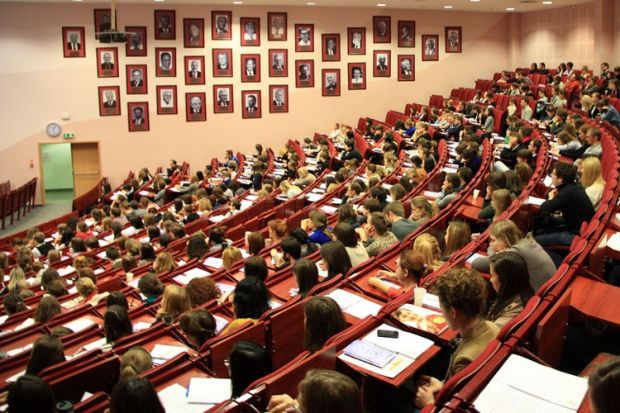Source: Tomasz Bidermann/Shutterstock.com
Plans to scrap limits on the size of some classes at the London School of Economics may be approved next month despite opposition from students.
Under changes recommended in an internal report, the LSE would remove its limit of 15 students per class if the class is taught by a permanent member of staff.
The limit would still apply to classes led by graduate teaching assistants, which account for 63 per cent of those taught.
However, the proposals have faced fierce opposition, with almost 70 per cent of 2,766 responses to a student survey saying that they would not want class sizes to rise to 30, even if they were taught by a senior academic.
Rosie Coleman, education officer at the LSE Students’ Union, said that many students were not keen on the trade-off, which would counterbalance bigger classes with more contact with top-level staff.
“Students are often disappointed by the lack of personal interaction with staff,” Ms Coleman said.
“Our postgraduates are paying some of the highest fees in the country – they don’t want to see their tutors from the back of a big classroom,” she added.
However, Paul Kelly, pro-director for teaching and learning, said rules on class size were arbitrary, noting that some academics were able to teach successfully up to 80 students in a class. “Small classes work in some subjects but not in others,” Professor Kelly said. “In accounting or management, there are case study groups that are big yet extremely interactive.”
He said that there were already exceptions that meant classes of more than 15 students were fairly common, and that relaxing class sizes rules would allow more contact between faculty and students, as had been requested in feedback forms.
He also questioned the findings of the student consultation, saying that it had used “leading questions” and that the questionnaire had allowed students to answer on multiple occasions.
An academic board vote on the issue was due to take place last week, but it has been postponed to allow more consultation.
Register to continue
Why register?
- Registration is free and only takes a moment
- Once registered, you can read 3 articles a month
- Sign up for our newsletter
Subscribe
Or subscribe for unlimited access to:
- Unlimited access to news, views, insights & reviews
- Digital editions
- Digital access to THE’s university and college rankings analysis
Already registered or a current subscriber? Login





